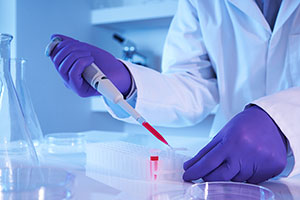Attorney General Jeff Sessions has put an end to an Obama-era Justice Department initiative which created a panel of independent forensic experts tasked with reviewing crime lab procedures used by the FBI and federal prosecutors. The National Commission on Forensic Science (NCFS) was introduced in 2013 with the goal of ensuring forensic expert testimony from the FBI and other law enforcement officials was accurate and based on sound scientific procedures. Sessions announced that the panel will be replaced by an internal task force, but did not provide details about when or how the transition would occur.
National Commission on Forensic Science Created Under Obama DOJ
After a series of damning reports which questioned the scientific validity of common forensic expert techniques used to convict defendants in federal criminal trials, the Obama-era DOJ created the NCFS to review expert testimony and provide recommendations for prosecutors and law enforcement agencies. Notably, the NCFS targeted traditional methods of forensic investigation used to identify and prosecute defendants that have little scientific support, including bite-mark analysis, chemical analysis of bullets to ID a gun, and hair match analysis. The commission called for higher standards of forensic expert testimony which not only ceased use of these common tactics, but also increased scrutiny on when and how prosecutors used DNA evidence – which can be reliable if analyzed correctly.
The NCFS produced a report last year which encouraged the DOJ to set higher standards of review for DNA and fingerprint evidence, and asked for the government to dedicate millions of dollars to the FBI budget to improve forensic expert practices in these scientific areas. Although the report was heavily criticized by prosecutors and law enforcement officials for contradicting years of settled law on forensic expert testimony, the DOJ welcomed suggestions and set the tone for continued review of techniques used to identify guilty defendants and clear innocent ones. The commission’s report and advisement resulted in a $20 million research effort to improve forensic techniques in crime labs across the country, and increased ethical standards for forensic experts and labs whose work is used during criminal trials.
Despite a letter from several forensic science experts on the panel written to Sessions which implored the Attorney General to continue to value the contributions of the scientific community in setting standards for forensic science experts, the NCFS will be discontinued in favor of an internal DOJ board which may or may not involve any forensic experts.
AG Sessions Also Ends Review of FBI Testimony
Central to concerns about the use of faulty forensic expert testimony was a 2009 report from the National Academy of Sciences which began to question the scientific validity of forensic techniques used heavily by the FBI to convict defendants. A second report in 2012 further exposed FBI expert witnesses for using flawed science and botched methodologies to help convict hundreds of potentially innocent people, some of whom were sentenced to death. In 2014, the FBI undertook a wide-scale review of its own expert testimony and scientific methodologies in an effort to ensure forensic witnesses used against criminal defendants were basing their conclusions on sound scientific principles.
The review identified flaws in the methodology used to match hair samples to defendants and bullets to weapons – two techniques that FBI experts had grossly overstated the effectiveness of for years. Although the review has been ongoing for nearly three years, AG Sessions announced the process would no longer continue. The DOJ announced that there are plans to continue to ensure that testimony based on forensic science is accurate and reliable, however, independent experts are no longer involved in the process. The move has been welcomed by federal prosecutors who have long criticized the commission and use of independent scientists to increase standards in forensic expert testimony for being overly expensive and creating difficulties for law enforcement and prosecutors.
Sessions Criticized for Ending Independent Forensic Science Panel
In the wake of his announcement that he would not continue use of the NCFS, Sessions has received strong criticism from a number of scientists and organizations committed to improving forensic expert testimony. The commission’s involvement in analyzing forensic evidence led to elimination of unreliable techniques such as bite-mark evidence, and has better identified when and how DNA can be used – contributions which forensic experts believe are invaluable to criminal justice.
As exonerations of defendants convicted on the strength of faulty forensic techniques continue to rise, scientists and other critics of Sessions’ actions expressed concern over the reduced role of forensic experts and doubt that an internal board created within the DOJ could accomplish the same objectives as an independent commission of scientists could. Regardless of objections from the forensic science community, Sessions will continue his plan to internalize review of expert testimony with the goal of making forensic science available to law enforcement.




